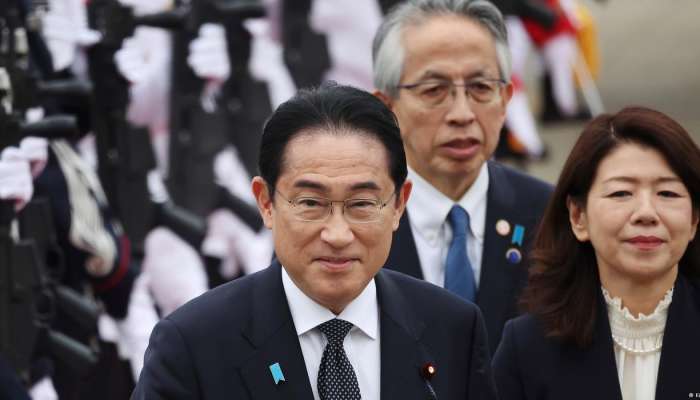
Seoul: Japanese Prime Minister Fumio Kishida arrived in Seoul on Sunday for a summit with South Korea's President Yoon Suk Yeol, in an attempt to deepen ties in face of the growing nuclear threat from Pyongyang.
Kishida was greeted by officials on his arrival and visited the Seoul National Cemetery to lay flowers for South Korea's war veterans. He will hold talks with Yoon later in the day.
The two Asian nations — key allies of the United States in their tensions with North Korea — have long had lukewarm relations because of Japan's colonial occupation of the peninsula for 35 years until 1945. Japan's colonial-era atrocities towards Korea, such as sexual slavery and forced labour, has made reconciliation difficult.
President Yoon is now attempting to repair ties and has made it a priority for his administration. Yoon visited Japan in March, attempting to open a new chapter in relations between the two countries despite historical feuds.
Ahead of Kishida's visit to South Korea, the Japanese prime minister told reporters that he wishes to have "open-hearted exchange of views" with Yoon.
Few experts, however, Kishida is unlikely to be well received in Seoul if he does not make a sincere apology, Benjamin A. Engel, research professor at the Institute of International Affairs at Seoul National University told AFP news agency.
The Japanese leader is taking things slow to accommodate for domestic politics back home, Daniel Russel, former US assistant secretary of state for East Asia and the Pacific told Reuters news agency.
Meanwhile around 100 South Koreans staged a protest against Kishida's trip on Saturday, saying that war crimes must be at the top of the summit's agenda.
North Korea's nuclear aims on the agenda
President Yoon has signalled that an apology from Kishida will not be necessary. Instead, he is likely to focus on their shared cooperation in the face of North Korea's nuclear threat, Shin-wha Lee, an international relations professor at Korea University told Reuters.
US President Joe Biden recently hosted Yoon at the White House where they signed the "Washington Declaration." Under this, the US pledged to share more information of its nuclear planning and response to Pyongyang with South Korea. In return, Yoon pledged his country would not pursue its own nuclear program.
North Korea's Supreme Leader Kim Jong Un last year declared his country an "irreversible" nuclear power and has since doubled down on weapons development and testing.e further for the atrocities towards South Koreans, even though they believe Japan has not apologised sufficiently.
In 2015, the two countries reached a settlement under which Tokyo issued an official apology to "comfort women" who say they were enslaved in wartime brothels, and provided 1 billion yen ($7.4 million; €6.6 billion) to a fund to help the victims. The fund was soon scrapped by South Korea for being an insufficient help to victims.